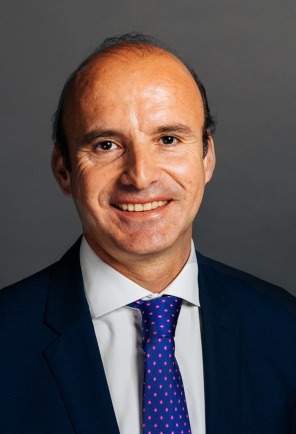Top European banks fall short of resilience and profitability expectations
U.K. banks included were more resilient than European peers but falling short on profitability. No bank has reached outstanding profitability and resilience according to A&M’s analysis.
London – Global professional services firm Alvarez & Marsal (“A&M”) today announces the findings of its first edition of the Euro Banking Pulse (“The Pulse”). The Pulse analyses the 24 largest European banks in 2018, scoring each of them against KPIs linked to both profitability and resilience. The report finds that top European banks lack adequate resilience and returns above the ex-pectations of customers, markets and regulators.
Emerging themes
The battle for the throne (BBVA, Credit Mutuel, Danske Bank, HSBC, ABN Ambro, Credit Agricole)
- Despite being ranked among A&M’s highest performers for profitability and resilience, none of these banks score high enough to enter the sweet spot.
- Banks must firmly set their eyes on the prize and deliver consistently quarter over quarter if they want to be in the running.
The quest for profitability (Commerzbank, Barclays, RBS, Standard Chartered)
- Northern European banks have prioritised building up resilience but are now struggling to generate adequate returns.
- Banks must now put their profitability agenda on the frontline of decision making.
The resilience trail (Lloyds, Santander, Caixa Bank, Banca Intesa, Rabobank)
- These banks have identified profit pools but now need to build up resilience while demonstrating consistent quarterly performance.
- Banks now must prioritise building up a robust internal capital generating business model and strate-gies to address coming regulatory changes.
Shields up and strategic moves (BNP Paribas, Deutsche Bank, BPCE, Societe Generale, DZ Bank)
- These banks are among the lowest performers. They are falling behind the pack and need to rethink their strategy and restructure parts of their business.
- Cost restructuring and lean business models must be played simultaneously with difficult capital al-location decisions.
Fernando De La Mora, Managing Director and the Head of Alvarez & Marsal Spain and Portugal, said: “European banking has become a battle only for the brave as banks struggle with the harsh landscape they face. Three years of flat to negative interest rates together with very thin credit growth has dried up revenue pools, while five years of headwinds from regulation pushing for more resilience in capital, li-quidity and provisions means higher costs for businesses.
“Added to this, ECB monetary policy and digitisation is eroding the revenue pools of banks unable to adapt to a low-cost environment, while capital regulation and new fast-moving risks signal a need for stronger capital requirements or outstanding risk mitigation strategies.
“However, the current climate also provides opportunities. For example, M&A consolidation moves could be a tailwind to generate opportunities to reduce costs and refocus or divest non-core business-es. Meanwhile, low yields due to ECB monetary policy can improve market access given the amount of capital waiting on the side-lines for good investment opportunities.”
Country/regional snapshot
- U.K.: banks score relatively high on resilience based on asset quality yet fall short when it comes to profitability due to low returns.
- Nordics and Netherlands: banks are well balanced in profitability and resilience, outperforming their peers.
- Germany: banks fall short on profitability based on low returns and high cost-to-income. Deutsche Bank and DZ Bank are in the danger zone.
- France: French local banks (Credit Mutuel & UniCredit) are well positioned but global banks (BNP Paribas and Societe Generale) sit in the danger zone.
- Spain: banks are outperforming in profitability but Santanter and Caixa Bank are still far from their peers in terms of resilience.
- Italy & Switzerland: banks receive average scores.
Factors impacting the U.K. banking landscape
- Brexit uncertainty: despite a lack of clarity, some Brexit effects are still visible as banks are chang-ing their operating models and/or moving businesses and operations to continental Europe, creating a strain on the industry.
- Ring Fencing: this could be disadvantageous for UK banks as it increases organizational complexi-ty, cost of operations while decreasing potential scale and synergy benefits, making many more vul-nerable to new entrants.
- Liquidity Pillar 2: this will increase the reporting and analytical burden for banks.
- LIBOR transition: this creates a huge burden on banks’ systems and a significant additional cost. The uncertainty over the new reference rate creates considerable valuation problems and repricing risk.
- Fintech challengers: the UK is the top European market for fintech and is ranked third globally by volume and capitalization. The growth of the sector challenges traditional banking and puts pressure on banks’ business models.
Harish Kumar, Managing Director, A&M Financial Industry Advisory Services practice, said: “While these U.K. banks analysed demonstrate resilience when it comes to asset quality, the key issue here is low profitability. Factors playing into these trends include Brexit uncertainly, increasing regulatory pressure, lack of clarity around the LIBOR transition and crucially that banks are having to fight off advances made by fintech challengers that threaten their market position. If these banks are to weather the storm and drive profitability, they will need to increase focus on customer requirements and experiences, challenge existing operating models and optimise cost base.”
A&M Euro Banking Pulse
The Pulse is an annual report which examines the 24 largest European banks in 2018, scoring each of them against key performance indicators (KPIs) linked to both profitability and resilience using proprietary calibration based on the European Banking Authority (EBA) and A&M thresholds.
All the data used in this report has been obtained from publicly available sources.
XXX
About Alvarez & Marsal
Companies, investors and government entities around the world turn to Alvarez & Marsal (A&M) when conventional approaches are not enough to drive change and achieve results. Privately held since its founding in 1983, A&M is a leading global professional services firm that provides advisory, business performance improvement and turnaround management services.
With over 3,500 people across four continents, we deliver tangible results for corporates, boards, private equity firms, law firms and government agencies facing complex challenges. Our senior leaders, and their teams, help organisations transform operations, catapult growth and accelerate results through decisive action. Comprised of experienced operators, world-class consultants, former regulators and industry authorities, A&M leverages its restructuring heritage to turn change into a strategic business asset, manage risk and unlock value at every stage of growth.
To learn more visit: alvarezandmarsal.com. Follow A&M on LinkedIn, Twitter and Facebook.
CONTACT:
Emma Ruttle, Nick Scott, Headland Consultancy PR, +44 (0)20 3805 4816
Alex Purvis, Marketing Manager, Alvarez & Marsal, +44 (0)20 7070 0606




